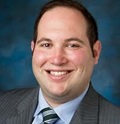Experiential Integration through Curriculum Design
This session examined two innovative models of curriculum design and how institutions can effectively integrate experiential learning, industry engagement, and career preparation into their academic programs. The University of New Hampshire’s Business in Practice (BiP) Program introduces credit-bearing, practitioner-led courses to provide the skills set needed to for students to be work-ready, focusing on 4 intelligences: Analytical, Social, Professional and Competitive. In contrast, Loyola Marymount University’s CBA Advantage program integrates a structured co-curricular experience that is rooted in reflective practices, and operationalized by the Suitable platform. Presenters discussed why each institution selected their approach, how they collaborated with various stakeholders during curriculum updates, and ultimately how their program adds value to meet student, institutional, and industry needs.
Learning Objectives
- (overarching): Evaluate how course-based and co-curricular approaches to embedding real-world skills into business curricula can support strategic initiatives, program-level learning outcomes, and career readiness at business schools.
- (UNH): Analyze the merits and efficacy curricular requirements like the Business in Practice (BiP) Program to level the playing field and prepare students to be work-ready by integrating practitioner-led courses, real-world projects, and hands-on learning experiences.
- (LMU): Explore how co-curricular programs, like CBA Advantage, can enhance student development through integrating reflective learning experiences into student e-portfolios.
Speakers

Josh Spizman is a professor of finance and stepped into the role of associate dean of faculty and academic programs in June 2023. Since joining LMU in 2011, Spizman has served in a number of leadership roles for the college including chair of the Department of Finance, chair of the CBA Undergraduate Program Committee, faculty advisor for the Finance Society and Lion Investing Society, and director of the LMU Stock Pitch Competition. Spizman earned his Ph.D. in finance and B.S. in mathematical sciences from Binghamton University. His research interests are in capital markets, corporate finance, and public finance. Spizman's research has been published in the Journal of Financial Economics, Journal of Banking and Finance, Journal of Financial Markets, and The Financial Review.

Jackie oversees the co-curricular elements of the student experience within CBA. She is the lead for CBA Advantage, works closely with student organization leaders, and focuses on CBA’s student engagement within the college and across campus. Jackie works alongside the assistant dean of undergraduate programs to manage the CBA undergraduate student experience. Her goal is centered on ensuring that students have access to all the resources and opportunities to be successful in their educational journeys.

Luciana Echazú (Lu)is Associate Dean for Undergraduate Education and Associate Professor of Economics at Peter T. Paul College of Business & Economics at the University of New Hampshire, where she joined in August 2020. Her research interests are in the area of law and economics, with a specific focus on corruption and criminal behavior. She also conducts research in industrial organization, new trade theory and lately she has been working around risk and uncertainty. Prior to that, she was Associate Dean for Undergraduate Programs and Operations at the David D. Reh School of Business, Clarkson University, where she was also Associate Professor of Economics and Financial Studies. Since becoming an associate dean in 2018, Lu has been an active volunteer for the Association to Advance Collegiate Schools of Business, also known as AACSB International. At AACSB she is well known for her work in the steering committees for Women Administrators in Management Education (WAME), and Responsible Management Education (RME). At Paul College, she is helping the community advance work on sustainability, in alignment with Principles of Responsible Management Education (PRME), an initiative of the United Nations Global Compact, and of which Paul College is a signatory.

Mark Visco Jr. is the Co-founder and CEO at the Suitable, a rapidly growing education technology company headquartered in Philadelphia and working with over 175 schools. He leads Strategic Planning, Marketing, Investor Relations, Corporate Development, and Operations. Mark graduated from the University of Pittsburgh with a double degree in Marketing and Psychology. He also has work experience in higher education administration. This experience illuminated the many challenges that schools face when trying to engage their students outside the classroom due to inadequate technology platforms available. Mark started Suitable to create solutions that pioneer the next generation of student engagement and success to revolutionize the student experience. Mark has given innovative talks at top higher education conferences and has been featured within industry organizations (AAC&U, AACSB, NASPA, NACE, among others). Suitable also organizes an annual user conference, Pathways to Student Development and Success, that brings together higher education administrators nationwide.
Contact Us
For more information, please contact [email protected].
Thank you to our sponsor







